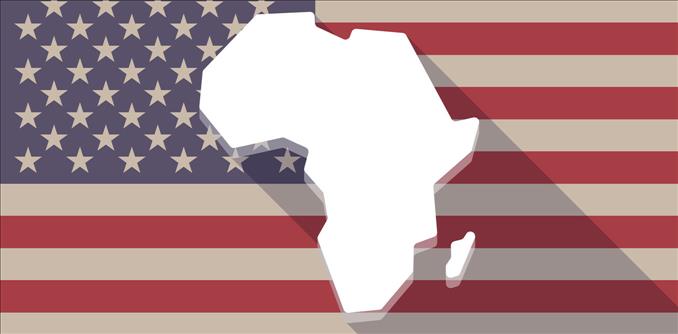
Trump's US still lacks an Africa policy but that might be about to change
On the sidelines, however, serious thinkers were contemplating the future of the US in Africa, and as always happens in the jostling for position that accompanies new presidents in the US, people began to lay out their wares in the hopes of earning an appointment. And at the end of 2016, one in particular stood out: J Peter Pham of the , a foreign affairs think tank, who published a paper widely taken as an Africa policy manifesto for the new administration.
Entitled , it uses the sober language of deliberate realism. Examining both the US's interests and global security, it affirms that the US still has a mission to undertake in Africa, but not the one it has embarked on previously. Judging by what I heard on a recent visit, the Washington rumour mill now seems convinced Pham will be nominated as the US's assistant secretary of state for Africa, a vital state department post that's gone unfilled since Trump took office. So what does Pham's 'manifesto' for American Africa policy say about him?
Old and newAs his choice of title implies, Pham is apparently determined to upend old American perceptions of Africa; the tired old 'dark continent' is nowhere to be seen in his paper. But while Pham doesn't exactly say what the 'new Africa' looks like, he does emphatically suggest that the US rein in its dealings with African states that can't act like states – that can't or don't build structures to benefit their citizens, or earn proper legitimacy as both states and governments.
Pham also emphasises that the US should not look only to states, but to Africa's rapidly developing private sector. The state, he says, cannot and should not do everything – a core Republican tenet of domestic policy transposed onto African affairs.
The paper is laden with such 'selling points'. One, clearly calculated to appeal to an administration disinclined to rely on the state department is the open admission that that department needs 'rationalisation' – in other words, cuts. How this is to be done is another question. So, it is being done by , and by what the British courts would call 'constructive dismissal'. But plenty of very real talent and experience is being lost.
And in a White House where the president's son-in-law has become a with no obvious experience in anything but real estate, the state department needs every bit of countervailing expertise it can muster.
On this front, Pham's paper is a worrying document. It implies that the US's approach to African conflicts might best be left solely to the Pentagon, a move which would do terrible damage. Abandoning civilian oversight would hollow out the US's understanding of these highly complex wars and insurgencies. The State Department needs conflict experts more than anything else. As anyone who's witnessed US foreign policy since 9/11 knows, the causes of war are not addressed by dropping bombs.
The lie of the landPerhaps this is purely academic. After all, when (more likely than if) Pham is appointed, he'll have little political or budgetary heft to work with. But notwithstanding the diminishment of the State Department in which he may soon be serving, he is undeniably an impressive figure.
Of all the rumoured finalists for the position, he stands head and shoulders above the rest; a Vatican-trained theologian with immense historical knowledge, he worked for the Vatican's diplomatic service in conflict zones in Africa. He speaks and writes knowledgeably about the crucial importance of northern Nigeria; he is very well connected and well travelled.
If he can use the assistant secretary position to its fullest, he might be better placed than the UK's new minister of state for Africa, , a young adventurer who wound up administering much of and who went on to philanthropic work in Afghanistan. Unlike his predecessor Tobias Ellwood, who was simultaneously minister for both Africa and the Middle East, Stewart will at least be devoted to Africa – but he will also be split between two ministries, the Foreign Office and the Department for International Development.
It seems that on the British side of the Atlantic, Africa is too often still viewed as a single patient in need of foreign remedies rather than a cluster of very different emerging diplomatic and economic players. On that, chalk up at least one preliminary point for Pham in what might end up a sideways-glancing competition between two relatively young men who suddenly find themselves serious world players in the service of equally hapless governments.

Legal Disclaimer:
MENAFN provides the
information “as is” without warranty of any kind. We do not accept
any responsibility or liability for the accuracy, content, images,
videos, licenses, completeness, legality, or reliability of the information
contained in this article. If you have any complaints or copyright
issues related to this article, kindly contact the provider above.
Most popular stories
Market Research

- Pepeto Presale Exceeds $6.93 Million Staking And Exchange Demo Released
- Citadel Launches Suiball, The First Sui-Native Hardware Wallet
- Luminadata Unveils GAAP & SOX-Trained AI Agents Achieving 99.8% Reconciliation Accuracy
- Tradesta Becomes The First Perpetuals Exchange To Launch Equities On Avalanche
- Thinkmarkets Adds Synthetic Indices To Its Product Offering
- Edgen Launches Multi‐Agent Intelligence Upgrade To Unify Crypto And Equity Analysis




















Comments
No comment